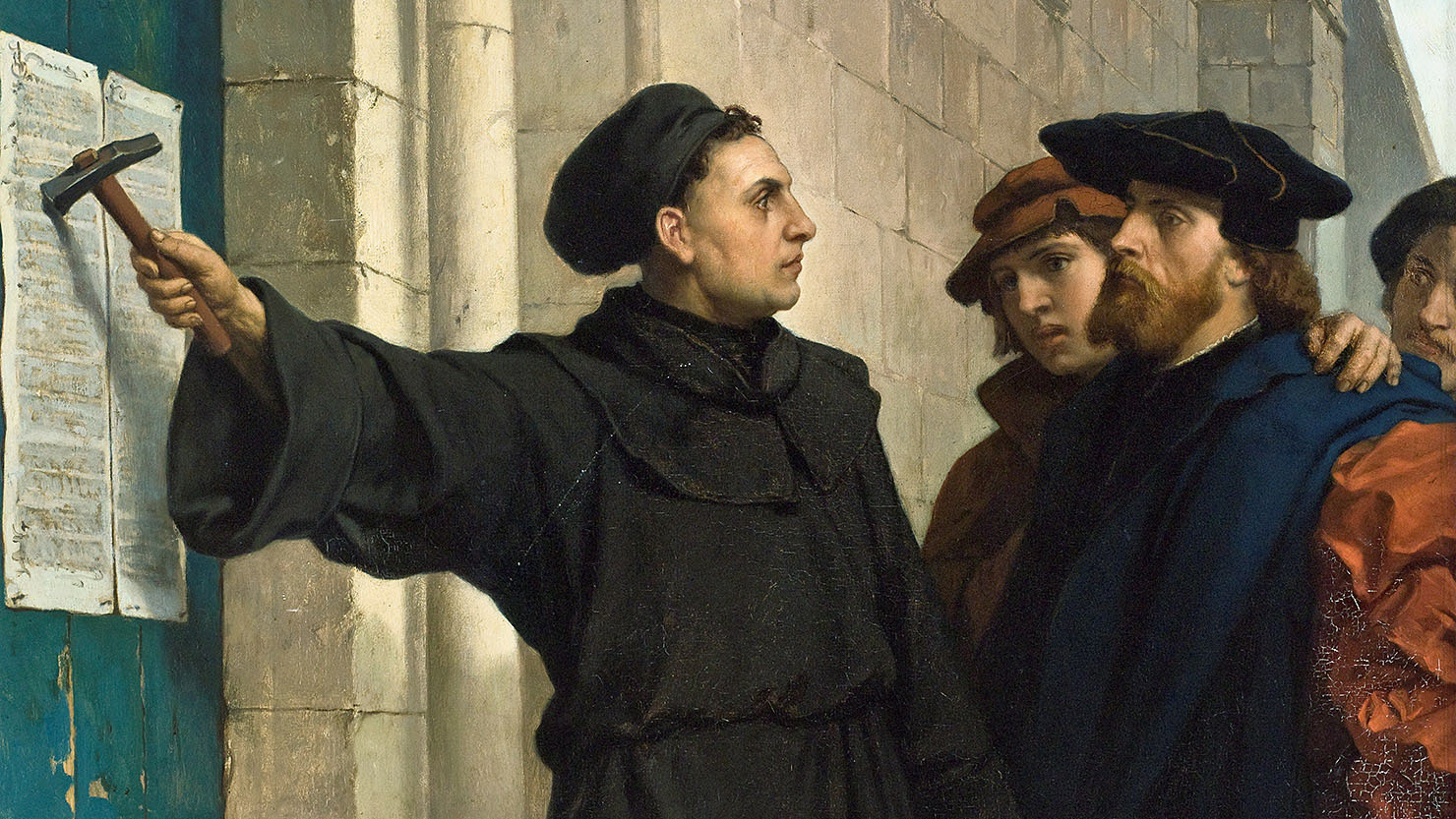
NASHVILLE (BP) — European study tours, conferences, publications and confessions of Protestant unity are among the ways Southern Baptists celebrated the Protestant Reformation’s 500th anniversary during the past year.
 Over that span, Baptist Press has published more than 30 stories and columns exploring the relation of Reformation theology to topics ranging from salvation to abortion, gender, Baptist origins and the celebration of Christmas.
Over that span, Baptist Press has published more than 30 stories and columns exploring the relation of Reformation theology to topics ranging from salvation to abortion, gender, Baptist origins and the celebration of Christmas.
Traditionally, the start of the Reformation is dated to Oct. 31, 1517. On that day, a monk named Martin Luther posted 95 theses to a church door in Wittenberg, Germany, challenging the Roman Catholic Church’s practice of selling indulgences — infusions of supposedly excess merit from saints granted by the Catholic Church to decrease a person’s time in purgatory.
Within a few years, Luther and others also challenged some of the Catholic Church’s fundamental teachings about salvation. The Reformers, who held a range of opinions on secondary doctrinal matters, began their own churches and argued salvation comes by grace alone through faith alone in Christ alone. While the Catholic Church responded positively to some critiques by Reformers of immoral practices among clergy, Protestants and Catholics remain divided on certain specifics regarding the doctrine of salvation.
Many scholars regard Baptists as among heirs of the Reformation tradition.
Among the past year’s Reformation commemorations:
— Southern Baptists published a range of Reformation-themed materials. Southern Baptist Theological Seminary theology professor Gregg Allison coauthored “The Unfinished Reformation,” a book clarifying what unites and divides Catholics and Protestants. LifeWay Christian Resources published both the six-session Bible study “Echoes of the Reformation” and “Reformation 500,” a multi-author book exploring how the Reformation has shaped the world.
— Southern Seminary and Southeastern Baptist Theological Seminary both offered study tours of key Reformation sites this summer. New Orleans Baptist Theological Seminary and Southwestern Baptist Theological Seminary each will lead a Reformation study tour in the spring.
— Conferences focused on the Reformation included the National Religious Broadcasters’ “Proclaim 17” convention, which featured addresses on the five Reformation “solas”; The Gospel Coalition’s National Conference, which featured historical addresses on Reformation figures and workshops on Reformation themes; and Southern Seminary’s Here We Stand conference on the Reformation’s legacy that begins today (Oct. 31-Nov. 2).
— Plans to celebrate the Radical Reformers were announced at Truett McConnell University in Georgia, New Orleans Seminary and Southwestern Seminary. The Radical Reformers were 16th-century Christians who left the Roman Catholic Church but didn’t believe the Magisterial Reformers — as Luther, Calvin and company came to be known — went far enough in purifying the church.
New research and theological statements also were occasioned by the 500th anniversary.
A poll by the Pew Research Center suggested a majority of U.S. Protestants today reject the doctrines of sola fide (the belief men and women are saved by faith alone) and sola scriptura (the belief Scripture is the only infallible guide for faith and practice). Pew also suggested the differences between Catholics the Protestants are narrowing in many cases.
Still, a November 2016 statement by the Italy-based Reformanda Initiative claimed persistent doctrinal divides should give evangelicals pause about cooperating with Catholics in missions and evangelism.
Within Protestantism, the “Reforming Catholic Confession,” released in September, sought to express “interdenominational unity in the essentials of the faith” shared by all Reformation heirs.
Southern Baptists were among signatories of both the Reformanda Initiative’s statement and the “Reforming Catholic Confession.”
BP’s yearlong Reformation coverage included a range of first-person columns; Reformation insights from professors at all six Southern Baptist Convention seminaries; consideration of factors that led to the Reformation; applications of Reformation thought to contemporary issues; and encouragement for believers to celebrate the five-century anniversary.
“From radio interviews to Rotary Club meetings, I’ve seen significant interest in this anniversary,” Union University professor Ray Van Neste wrote in a February column. “… As Baptists we may wonder if the Reformation has anything to do with us. Why should we celebrate something that happened 500 years ago?
“I believe the Reformation has much to do with us, and we are duty-bound to celebrate it,” Van Neste, co-editor of “Reformation 500,” wrote. “Here is why: At its heart, the Reformation was a rediscovery of the Gospel.”
















